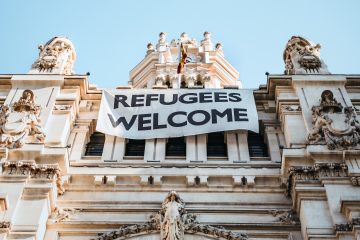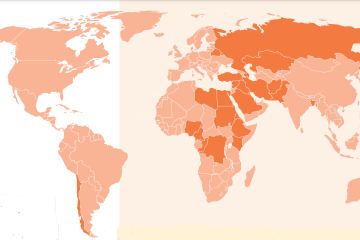The Covid-19 crisis is also a human rights crisis, with most of our rights under threat in some way or another – and we all have a role to play in protecting them.
This was the message to come out of a recent online panel discussion featuring speakers from Prisoners of Conscience, Amnesty International UK, Front Line Defenders and Human Rights Watch.
“The world is grappling with how to fight the Coronavirus and countries have adopted extraordinary measures in response. This has had a knock-on effect on people’s rights, including freedom of expression and freedom of speech. The voices of dissidents have been and continue to be silenced,” said Gary Allison, director of Prisoners of Conscience.
“Human rights defenders face particular challenges during the lockdown. They often live on the fringes of society, in hiding or in exile, or in detention. They have restricted access to healthcare and other services, are separated from families and other support networks,” he added, emphasising how these difficult conditions have the potential to leave a severe and lasting effect on the mental, physical and economic well-being of people who may have already experienced considerable trauma and tyranny.
Ed O’Donovan, head of protection at Front Line Defenders, added to this sentiment saying: “Our biggest concern is the threat to the fundamental right to defend human rights. Human rights defenders are at heighten risk during this pandemic in every region of the world. This goes from curfews and lockdowns putting them at greater risk of physical attacks and killings, as we’ve seen in the Americas and Colombia for instance, to people not being able to organise and protest.”
Amnesty International UK’s director Kate Allen explained how Amnesty is concentrating its coronavirus response efforts on how to protect people from the virus, making sure that government responses are proportionate and how that people have access to healthcare, housing and other human needs and rights, among other things.
“We are also looking at international cooperation because quite clearly if ever there was a situation where none of us are safe, until all of us are safe, this is it. There needs to be international cooperation about support to parts of the world that have the least resources and where health systems are not strong enough,” she said.
Over at Human Rights Watch, they’ve been monitoring the crisis from several perspectives. This includes cases of government over-reach in both enforcing the lockdown and attempting to get the virus under control.
“In some places there have been abusive attempts to enforce quarantines and curfews. In the Philippines, for example, people have actually been put in cages for dogs, while in South Africa a man was killed outside his house by police who were allegedly enforcing curfew”, said Akshaya Kumar, director of crisis advocacy at Human Rights Watch.
She added: “It is one of the first times in which we are seeing countries around the world grappling with a very similar challenge all happening at the same time. But what previous crises have shown us is that there are some communities that will inevitably not face the same circumstances, for example, refugees living in crowded camps, people in detention, prisoners of conscience, people with disabilities, older people, children who are out of school and women who are at heightened risk of gender-based violence.”
“Once our human rights are gone, it will be hard to get
them back”
All of the event speakers highlighted the need to fight for our rights
because once they are gone, it will be difficult to get them back.
In reference to track and trace apps, Human Rights Watch’s Kumar said: “We really need to think through what are the rights that we sacrifice when we sign up for a system that allows this information to be centralised and what are the benefits. These apps should have the protection needed for privacy, but in some more authoritarian governments they are trying to make it mandatory.”
“Now is the time for activism and for us to defend our rights with alliances between difference movements and using our resources to make sure we have the biggest impact we possibly can,” said Allen at Amnesty International UK.
Front Line Defenders’ O’Donovan emphasised the need to influence the people and institutions who hold most power: “Mobilising public pressure on politicians is key but also important is recognising the role of businesses on these issues. You can see in relation to Black Lives Matters certain companies have come out with statements. This is great but holding them to account for these statements and making sure they live up to what they’ve promised will be another matter. Businesses are so reliant on the public and by raising awareness and choosing to take your business elsewhere can play a very important role.”
“If NGOs and other bodies can demonstrate the financial and social benefits of human rights, we can help shift the focus and push governments and companies to support human rights and to take action against abuses,” said Prisoners of Conscience’s Allison.
He added: Also, if NGOs like all of us today on this panel can get closer together to create a more powerful and unified movement, the easier it will be for us to create permanent change over the long-term. But we can’t do that alone. The more support human rights charities and NGOs receive from the public the stronger we will be.”
Click here to watch the full discussion.


